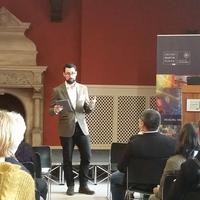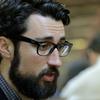The recently convened “Demography, Ageing and Health” conference, hosted by the Oxford Institute of Population, brought together emerging researchers and established academics in a melting pot of complementary perspectives. The range of disciplines and career-stages spanned from PhD student and architect, Theodore Bowering from the University of Cambridge, to molecular geneticist Professor Lena Rasmussen from the University of Copenhagen. Representatives from over 16 countries were represented, capturing as many disciplines, cultural perspectives, and disciplinary expertise. It is this diversity that keeps me interested in the field of ageing and that made the “Demography, Ageing and Health” conference a success.
The field of gerontology is unique in its scope and focus. Whereas a cardiologist will study a specific organ/system, i.e. the cardiovascular system, a gerontologist focusses on a specific age group/process: the ageing process. Consequently, the way in which an individual can approach gerontology is virtually limitless, e.g. demography, biology, sociology, economics, etc. Within the “Demography, Ageing and Health” conference, this disciplinary heterogeneity was on full display. As a psychologist and epidemiologist, it was a great pleasure for me to hear from scholars with perspectives very different to my own. Although we are broadly studying the same process and group of individuals, having my eyes opened to different ways to address research challenges or methodological hurdles is, I think, an integral component of moving forward as an academic. Further, I believe it is at the intersection of disciplines and through the cross-pollination of ideas, expertise, and perspectives that the most exciting developments happen. In my fledgling academic career, I find the most productive moments are much less “eureka!” and much more, “ah, I hadn’t thought of that.” For example, given my largely quantitative focus, I greatly benefit from research that examines the same sorts of questions, e.g.” how do we age healthily?”, but from a qualitative perspective, e.g. “what do older adults consider to be ageing healthily?” By informing the quantitative questions I intend to ask with perspectives from older adults, the ecological validity and practical relevance to older adults is greatly increased.
In addition to the variety of disciplines represented at the “Demography, Ageing and Health” conference, the cultural heterogeneity of the attendees greatly enriched the content of the presentations. Even large international conferences are often disproportionately dominated by Western and/or North American delegates. Given the geographic locale of the conference and the affiliation with the International Alliance of Research Universities, the “Demography, Ageing and Health” conference provided ample opportunities for researchers from Japan, China, India, Latvia, Albania, and beyond to attend. And it was through this diversity that some of the most intriguing presentations were given. Often times when one thinks about the ageing process one forgets the incredible diversity of socioeconomic, socio-political, and cultural contexts in which the experiences of ageing are lived. Having been born and raised in Canada I have a specific set of ideas about the context in which the ageing process is experienced, which may be incongruous with individuals from other socioeconomic, socio-political, and cultural contexts. There were a great many presentations in which a light was shone on some of these diverse perspectives. For example, Professor Aradhana Nanda from the University of Delhi, in her presentation “Demographics, old age saving and inflation: A post reform analysis”, examined how the 1991 financial sector reforms in India have affected older adults. This presentation shined a light on the need for policies for controlling inflation and reforms in the existing retirement system, specifically with respect to a women-centric retirement scheme. Prior to this presentation I was (woefully) unaware of these issues within the Indian retirement system, so Professor Nanda’s work was incredibly enlightening. This was just one of many presentations that highlighted these varied contexts and provided attendees with a broader perspective of global ageing.
One of the great strengths of the ageing research community is the depth and breadth of perspectives represented, a strength that was aptly captured at the “Demography, Ageing and Health” conference. During the course of the two-and-a-half days at the Oxford Martin School, I had the privilege of having my preconceived notions of ageing challenged by leading scholars from a range of disciplines, cultures, and career-stages. To my mind, it is this collaborative spirit from a diverse set of academics that will be required to collectively face the challenges of an ageing population.
About the Author
Theodore D Cosco joined the Oxford Institute of Population Ageing in 2016 as a Research Fellow. He holds a Canadian Institutes of Health Research Postdoctoral Fellowship to conduct a project entitled “Resilience and healthy ageing across the life course” in conjunction with the MRC Unit for Lifelong Health & Ageing.
Comments Welcome:
We welcome your comments on this or any of the Institute's blog posts. Please feel free to email comments to be posted on your behalf to administrator@ageing.ox.ac.uk or use the Disqus facility linked below.
Opinions of the blogger is their own and not endorsed by the Institute
Comments Welcome: We welcome your comments on this or any of the Institute's blog posts. Please feel free to email comments to be posted on your behalf to administrator@ageing.ox.ac.uk or use the Disqus facility linked below.













